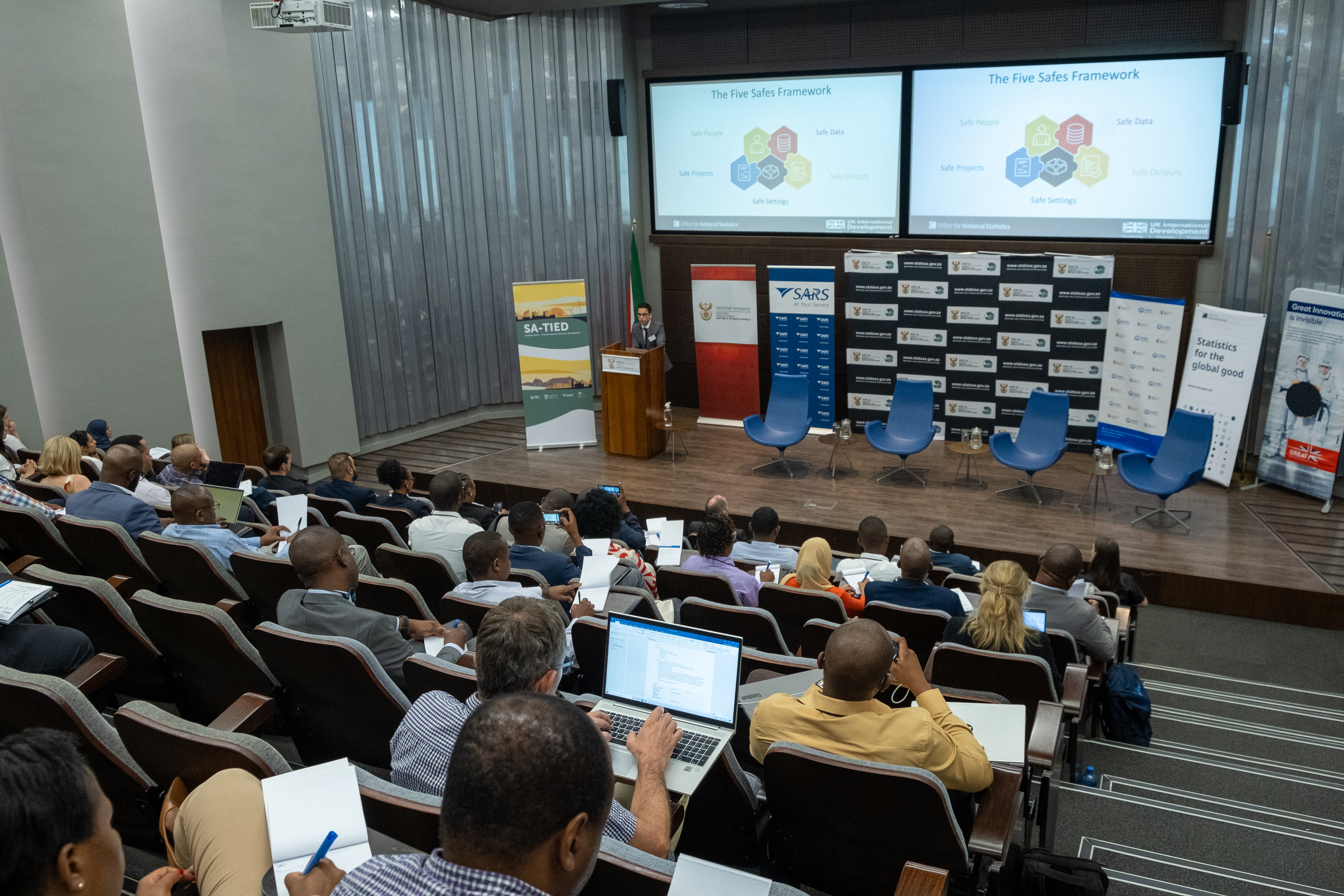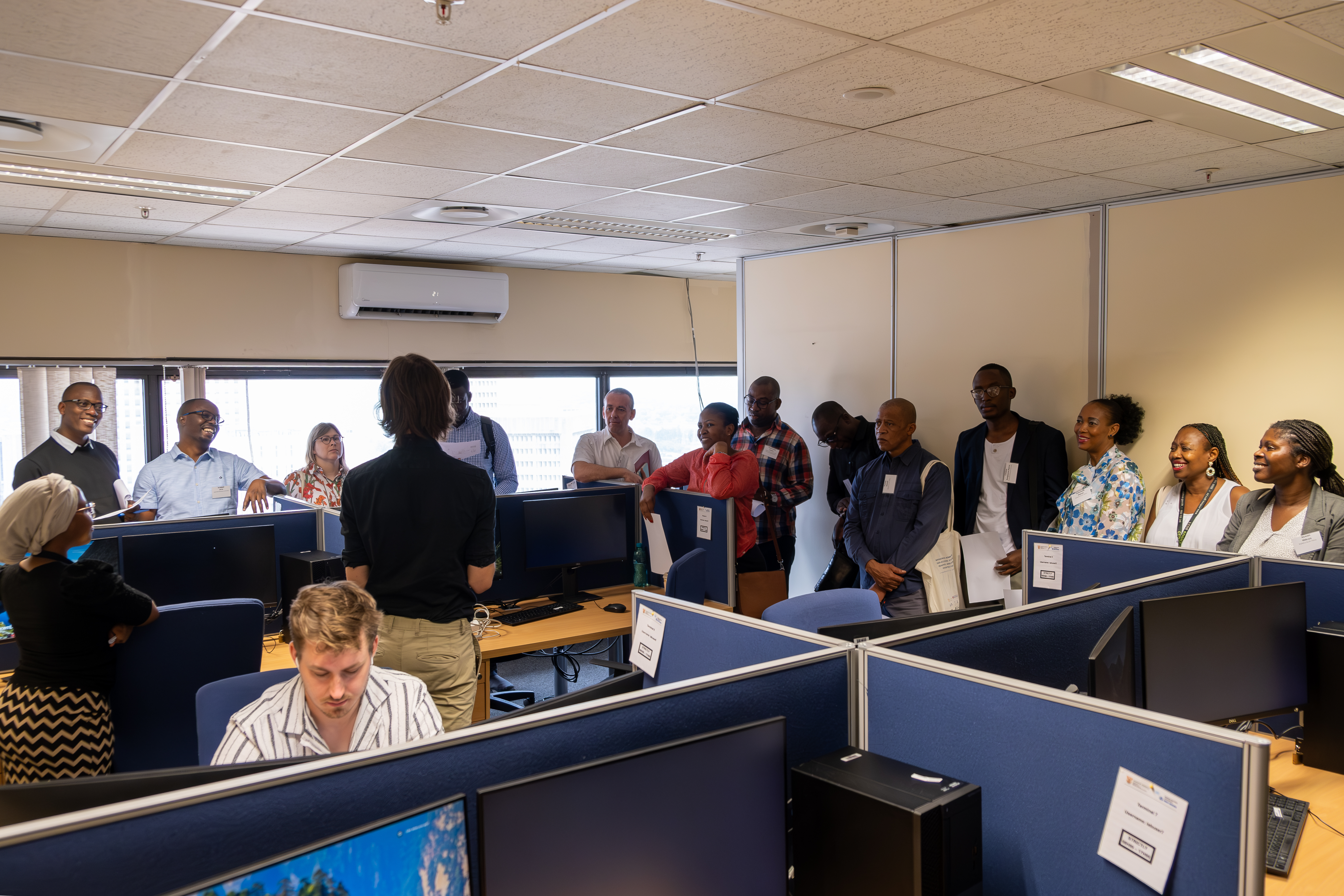News
Supporting African policymaking through data access initiative
To support evidence-based policymaking across southern and east Africa, UNU-WIDER, in collaboration with the National Treasury of South Africa, the Spatial Economic Activity Data South Africa (SEADsa), and the SA-TIED programme, successfully organized a capacity development initiative from December 4-8 December 2023. Held at the Statistics South Africa offices in Pretoria, the event, titled "Navigating Administrative Data Access: Strategies, Reasons, and Partner Perspectives," brought together over 100 senior government officials from South Africa, Zambia, Uganda, Mozambique, Tanzania, and Rwanda.
The capacity development initiative fostered discussions on UK and international best practices for secure data access and protection, providing valuable insights to high-level invitees. It introduced training approaches to support data privacy protection and the efficient functioning of data centers, emphasizing the importance of instilling confidence and trust among data suppliers and the public by transparently protecting data and privacy. Participants also had the opportunity to delve into the details of establishing safe and secure environments for researcher data access, including principles, policies, training, and monitoring for existing and future infrastructure.

Facilitated by the UK Office for National Statistics (UK-ONS), the initiative was geared towards empowering participants to adeptly handle and protect administrative data for its application in research. The significance of this collaborative initiative extends beyond its educational aspect, making contributions to the advancement of government institutions' capabilities in utilizing administrative data. The weeklong training also provided attendees with insights into two pivotal UNU-WIDER programmes, the SA-TIED programme, and the Domestic Revenue Mobilization (DRM) programme which serve as tangible examples to encourage the adoption of evidence-based policymaking approaches in participating countries.
The training sessions and collaborative activities fostered a dynamic environment where participants engaged in networking opportunities and idea sharing. The establishment of a network of experts and collaborators is envisioned to be a lasting outcome, ensuring the continued exchange of ideas and best practices beyond the conclusion of the event.
Some of the key features of the capacity development initiative were a visit to the National Treasury Secure Data Lab Facility (NT-SDF) and a panel discussion on "Making Admin Data Available: The African Experience," led by Aalia Cassim, Director, Network Industries, National Treasury, Aimable Nsabimana, Research Fellow, UNU-WIDER, Amina Ebrahim, Research Fellow, UNU-WIDER, and Tina Kaidu Manager of Research and Revenue Modelling, Uganda Revenue Authority. The visit and the panel discussion provided insights into the challenges and successes of making administrative data accessible in the African context. The initiative also featured a high-level dinner, attended by National Treasury Director General Duncan Pieterse, facilitating further discussions on the goals and implications of the initiative.


Attendees also got to hear from partner representatives, including Antony Phillipson, British High Commission in South Africa, Dominik Etienne, Head of Head of Partnerships and Programme Unit, UNU-WIDER, Boipuso Modise, Deputy Director General, Economic Policy, National Treasury, and Adil Deedat, Head of International Development Operations, UK-ONS.
The capacity development initiative represents an important stride towards advancing evidence-based policymaking and encouraging South-South learning in the represented countries. It also serves as a testament to the commitment of the participating countries to harness the potential of administrative data for the collective benefit of their societies.
 Join the network
Join the network